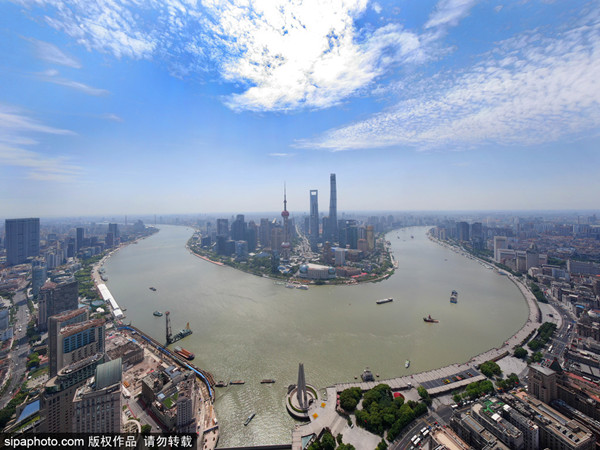Shanghai remains popular investment destination globally

Shanghai's actual use of foreign investment amounts to $20.23 billion in 2020, growing by 6.2 percent year-on-year, hitting a record high. [Photo/Sipa]
Shanghai's actual use of foreign investment amounted to $20.23 billion in 2020, growing by 6.2 percent year-on-year, hitting a record high, which has shown that the city's economy has largely remained resilient despite the global COVID-19 pandemic.
In January, a total of 62 foreign invested projects, with a combined investment of $11.85 billion, signed agreements with the municipal government of Shanghai, reflecting the city's increasing economic appeal to foreign investors.
Suga Masahiko, director of the Japan-based Mitsui Sumitomo Insurance (China), said that the sound investment environment and the opening-up policies of Shanghai have been the main drivers for attracting foreign investment.
He also praised the government's role in containing the COVID-19 pandemic and in helping the company resume normal economic activities last year. As many enterprises have been greatly impacted by the COVID-19 pandemic, the municipal government has issued a number of measures to help enterprises resume work and production, as well as to alleviate their struggles caused by the pandemic.
The Italian pharmaceutical company Chiesi Farmaceutici S.p.A announced that it will set up a commercial company in the Waigaoqiao Free Trade Zone of the China (Shanghai) Pilot Free Trade Zone, and also signed up to participate in the fourth China International Import Expo (CIIE), which will be held in Shanghai this November.
"The CIIE has brought Chiesi rich dividends, and we have seen the tremendous influence of the CIIE," said Davide Dalle Fusine, general manager of Chiesi Pharmaceutical (Shanghai) Co. Ltd.
The CIIE offers a platform for companies from all over the world to showcase themselves and interact with each other. During the third CIIE last year, the Chiesi exhibition booth attracted a large number of visitors, with the company receiving cooperation overtures from companies and institutions.
"We have benefited a lot from the ever-improving business environment of China since entering the Chinese market. Shanghai is not only one of the important markets for Chiesi, but also our second home," said Fusine.
Additionally, a growing number of foreign companies have shown great confidence in the development potential and vigorous vitality of the Chinese market. They have also been actively engaging in the country's digitalization process in an effort to accelerate the pace of innovative development.
Global healthcare giant Johnson & Johnson, which is based in the United States, unveiled its innovation arm JLABS in Shanghai's Zhangjiang Hi-Tech Park in 2019, which is the world's largest of its kind and the first in the Asia-Pacific. It is an important initiative for Johnson & Johnson to build an open innovation ecosystem, enhancing innovation and cooperation among industry partners and academic institutions.
Boehringer Ingelheim, a German pharmaceutical company, opened its China External Innovation Hub in Shanghai in July, which is aimed at empowering more China-bred programs to fuel the company's pipeline and eventually benefit patients in the country, as well as around the world.
PepsiCo, one of the world's leading food and beverage companies, completed its extension project in Shanghai's Songjiang district last year, which is expected to be PepsiCo's largest production base in China for producing potato chips.
"The COVID-19 pandemic has promoted the rapid development of digital economy, especially the application of big data," said Xie Chang'an, senior-vice president and general manager of PepsiCo's Greater China Food Business.
Xie added that PepsiCo will take advantage of domestic opportunities brought by the country's "dual circulation" policy to increase investment in China in supply chains, talents, and innovative development.

 Print
Print Mail
Mail




